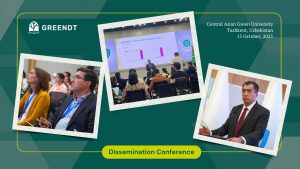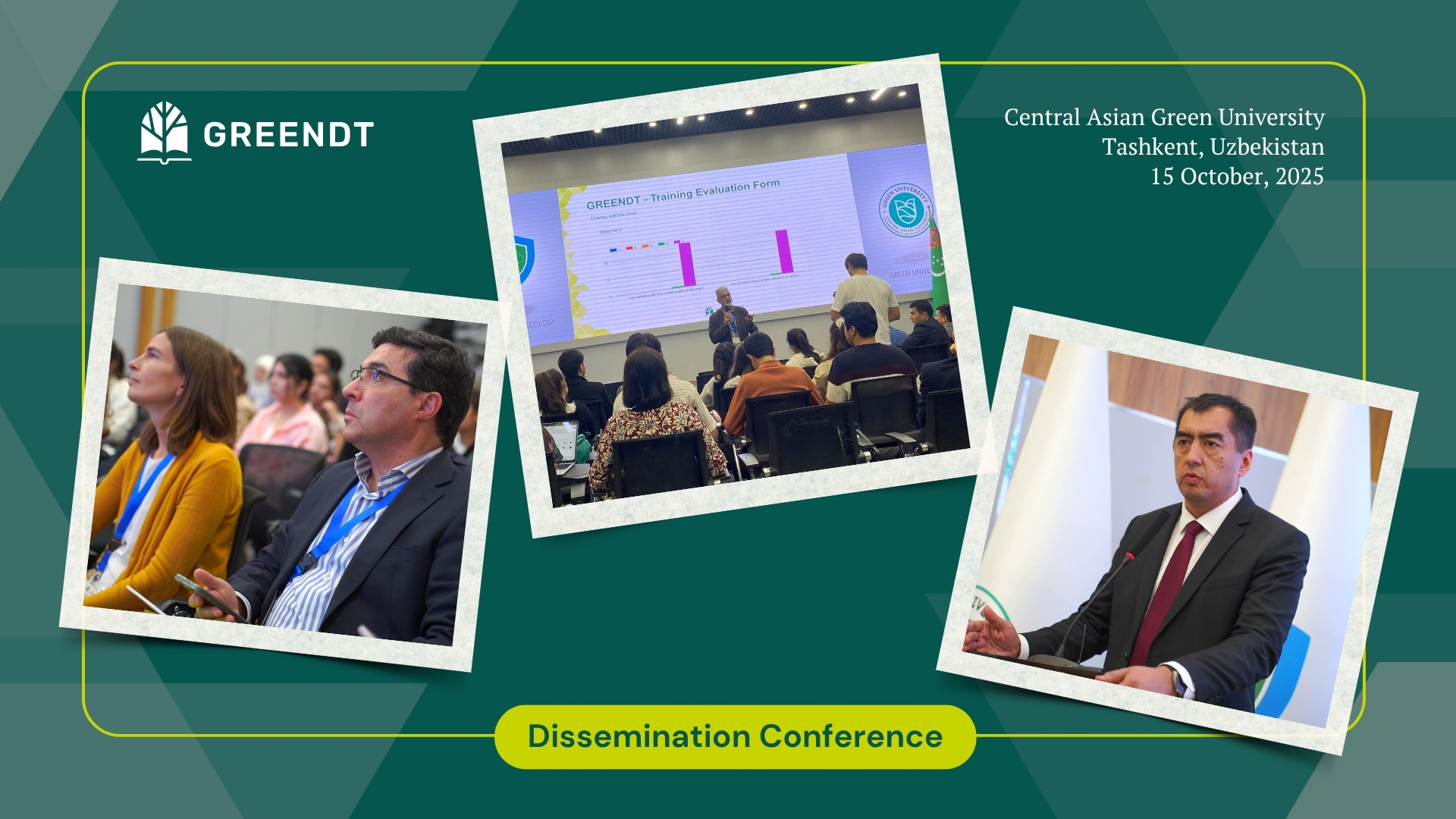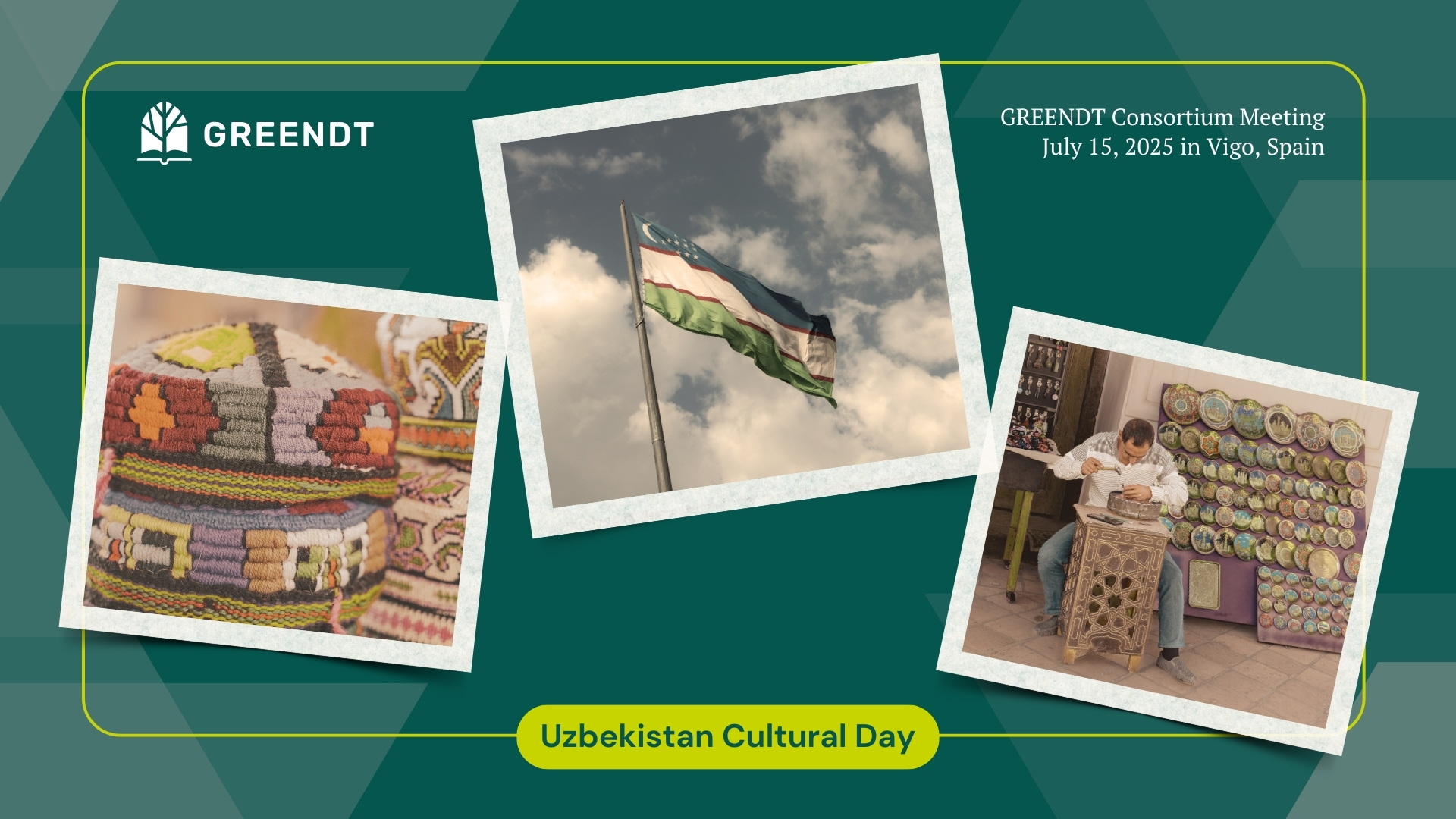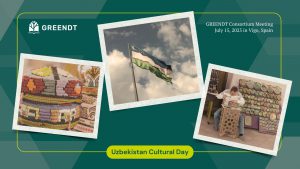
The GREENDT Project held a Dissemination Conference on October 15, 2025, at the Central Asian Green University (CAGU) in Tashkent, Uzbekistan. The event brought together representatives from ministries, universities, and related initiatives to exchange perspectives and foster collaboration on sustainable development, environmental engineering educationt and digital transformation in Central Asia.
As hosts of the event, the seminar was opened by Mr. Shakhriyor Nurulloev, Vice-Rector and currently Acting Rector of CAGU, who welcomed participants. Following him, Duarte Alves, coordinator of the GREENDT Project, presented the project’s status, emphasizing its key role in supporting environmental engineering education in Uzbekistan.
The conference then turned to the experiences gained through the Training of Trainers (ToT) activities carried out under the GREENDT framework. Claudio Cameselle (Universidade de Vigo), António Curado (Instituto Politécnico de Viana do Castelo), and Carla Gama (Universidade de Aveiro) shared insights and reflections from the ToT sessions recently held in Ourense, Viana do Castelo, and in parallel with the event at CAGU. Their contributions covered a wide range of topics, including engineering diplomacy, equity and inclusion, and water management; sustainable energy management, natural radiation, and GIS; as well as air pollution and climate change.
The seminar also featured presentations from related initiatives active in Uzbekistan and Central Asia, showcasing their efforts to foster sustainability, innovation, and capacity building across the region.
- The SPHERE project (2024-2027) is driving Uzbekistan toward a greener future by transforming higher education into sustainable transportation.
- The GDCAU project (2024-2027) aims to promote sustainable development and green transformation within higher education institutions in Central Asia.
- The SILKWAY project (2024-2027) is focused on electricity and heat production, which is also particularly important given the current geopolitical situation affecting countries in the Central Asian region.
Through this conference, GREENDT reinforced its commitment to advancing green and digital transformation in higher education, fostering stronger academic cooperation between European and Central Asian institutions.





